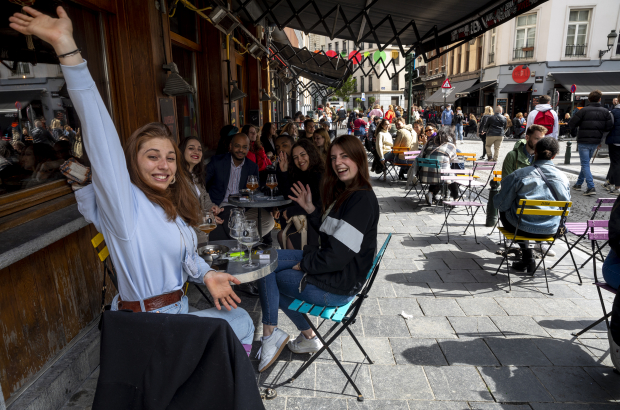- Daily & Weekly newsletters
- Buy & download The Bulletin
- Comment on our articles
Research shows improvement in Belgians' mental health since summer 2020
The mental health of the average Belgian is at its highest level since the summer of 2020, when the first coronavirus restrictions were lifted, researchers behind the Great Corona Study confirmed on Monday. Their study showed that more and more people are shaking hands or kissing people outside their social bubble.
Since the beginning of the health crisis, the study by the University of Antwerp, evaluated, among other things, the mental well-being of Belgians. Researchers worked from a base of 12 questions on topics such as a person’s level of concentration, lack of sleep, feelings of confidence, depression and self-esteem.
The latest survey, carried out last week, shows that things have been improving for some time. On average, the mental well-being of Belgians is at its highest level since the summer of 2020 and is even approaching the level of the last Belgian health survey, dating from 2018. This improvement has been recorded in all age groups.
"The biggest increase was seen among students, but they are also the ones who suffered the most," said Philippe Beutels of the University of Antwerp. "Their results were very bad, especially during the second wave. Today, their well-being is still below average, but this was already the case before the pandemic.”
The results also show that we shake hands or kiss more often. "We feel more protected and have more normal contacts," explained Philippe Beutels.
Beutels pointed out, however, that there are other problems that have not been examined in the context of this study. "The long-term consequences of the health crisis on mental health, which are not yet clear, must be taken into account,” he said. “A person who has felt very bad and is getting better for a while can still take a dive later. We also need to look at other indicators, such as the number of calls for psychological help or the use of antidepressants.”


















